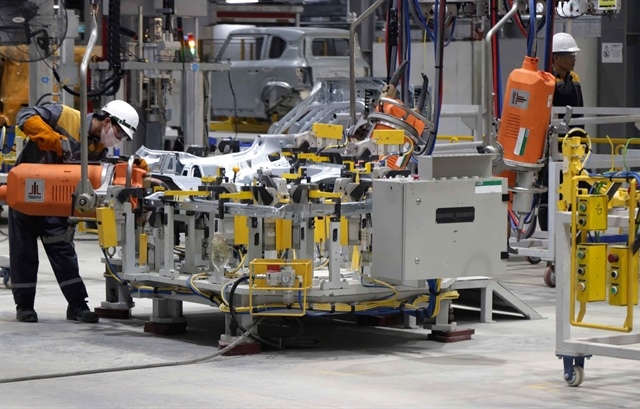Swathes of land wasted in Delta developments
Swathes of land wasted in Delta developments
The race to develop industrial parks in the Cuu Long (Mekong) Delta has led to thousands of hectares of arable land lying uncultivated and unused.

The area leased by tenants in the region's industrial parks accounts for just 20 per cent of 25,000ha occupied by 51 industrial parks and zones.
Only a few industrial parks in the provinces of Long An, Tien Giang, and Vinh Long and in Can Tho City are fully occupied. The others have been progressing at a snail's pace due to delayed infrastructure development projects.
The slow development of so many industrial parks and zones located on vast areas of fertile soil along the Tien (Anterior Mekong) and Hau (Posterior Mekong) Rivers has caused a massive waste of precious land, and local farmers are unhappy about it.
Among the wastage culprits are the 250ha Thanh Loc IP in Kien Giang Province's Chau Thanh District; 63ha Hung Phu 2B IP and the 262ha Hung Phu 1 IP in Can Tho City's Cai Rang District; the 350ha Dong Binh IP in Vinh Long Province's Binh Minh Town; the 340ha Song Hau IP in Hau Giang Province's Chau Thanh District; and the 120ha Tran De IP in Soc Trang province's Tran De District.
Vast areas of fertile land in these IPs have been left uncultivated, while many big projects are at a standstill after organising grand ground-breaking ceremonies.
This has made the situation worse for many local farmers who have become landless and jobless. The newly-established IPs have been unable to provide employment opportunities to residents who have lost their land to these IP projects.
The situation has prompted authorities in the region to consider cancelling several planned industrial parks and zones.
For instance, the People's Committee of Can Tho City has decided to suspend the plan to develop Hung Phu 2B IP and withdraw 110ha of the 262ha leased to long-delayed projects in Hung Phu 1 IP.
However, the authority plans to use the revoked land for ports and logistics development projects, not for agricultural cultivation.
Long An Province, which has attracted the largest number of investment projects in the Mekong Delta with 470 projects capitalised at US$3.5 billion, has withdrawn 12 investment projects this year with a total area of nearly 1,000ha.
These bring the total number of withdrawn projects in the Mekong Delta province over the past four years to 94 and the total area involved to 6,000ha.
After the withdrawals, the provincial authority has returned these plots of land to residents for cultivation.
Investors' financial incapacity, long delays in site compensation and project development are the major reasons behind the withdrawals of projects, local officials said.
Experts have said poor infrastructure is the biggest barrier to investments in industrial parks and complexes in the Mekong Delta.
Better access for IPs
The opening of the Dinh An Passage will allow 20,000-tonne vessels to enter the Hau River and reduce transportation costs for export goods by 10 to 15 per cent, making IPs and other industrial complexes in the Delta more attractive to foreign investors, said Huynh The Nang, vice chairman of the An Giang Province People's Committee.
"The linkages between localities in the Mekong Delta must be re-arranged and strengthened," said Le Van Banh, head of the Mekong Rice Research Institute.
But, he added that industrial production should not encroach on arable land.
At several seminars focusing on the Mekong Delta's economic development, experts have warned that provincial authorities have failed to establish inter-provincial linkages, and that this has hindered investment capital inflow into the region.
Others have pointed out that an investment of about VND4 billion ($190,500) is needed to prepare one hectare of land ready for investment.
Therefore, with around 20,000ha of land in IPs waiting for tenants over the past several years, Mekong Delta provinces and city have wasted trillions of dong in unproductive investments.
vietnamnews























